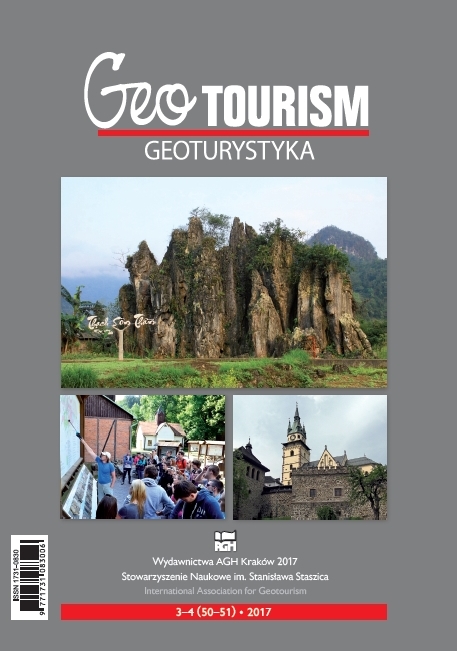Quest for the Lost World, or palaeontological geotourism
DOI:
https://doi.org/10.7494/geotour.2017.50-51.1Słowa kluczowe:
geotourism, geology, palaeontology, fossilsAbstrakt
Palaeontological geotourism could be one of many forms of propagating geological values of a country. It can meet the expectations of many tourists. For this broad category of people, paleontological tourism can instill curiosity about the extinct world, offering them places where they can feel like explorers, visiting these sites with a hammer and a chisel. Many of them will cherish the memories of adventures made during the search in the future, and some will find a new passion. Similar practices are used in Germany, for example, in Solnhofen or Holzmaden, where fossil exploration is available for a small fee. In most regions of Poland, you can find numerous places with fossils that anyone can search for. The greatest number of such sites can be found in the south of Poland, in the uplands and mountains, but also at the seaside, where the practice of palaeontological geotourism is possible. In the Holy Cross Mountains, the Sudetes, or in the Silesian-Cracow region, there are places where one finds fossils of plants or animals, including trace fossils. The only effort required in addition to the search for fossils is to develop guidelines and prepare guides for amateurs that quest for the lost world.Pobrania
Statystyki pobrań niedostępne.
Pobrania
Opublikowane
2020-07-09
Numer
Dział
Articles
Jak cytować
Andruszkiewicz-Gorzelak, M., & Mizerski, W. (2020). Quest for the Lost World, or palaeontological geotourism. GEOTOURISM (Geoturystyka), 50-51, 1. https://doi.org/10.7494/geotour.2017.50-51.1



